- Home
- Anne Lamott
All New People Page 10
All New People Read online
Page 10
My mother crossed herself, dusted off her hands, and went into the hall to open the door.
Tina Palabinkeses was in a stroller on our doorstep with her mother. She was my age but looked about four, dressed in a little yellow sunsuit that tied over each shoulder. She had long blond pigtails, tied with lavender grosgrain, black lashes on slanted blue eyes, a long scratch on her wide flat skull, enormous bottom lids, and her head and eyes were sort of lolling around. She was smiling. I was so intent on not staring that I gazed up and around at the ceiling as though I were at the planetarium, and Mady bared her teeth like Alfalfa.
This was the first time we met Tina—in her little plaid Keds and purple grosgrain ribbons—but after that I saw her all the time. Over the years she grew stronger and stronger. Her mother spent hundreds of hours with her in the pool at the rec center, where she learned to swim the crawl. Her hair turned that pale mermaid green, light see-through green. I saw her at every little-league baseball game I ever went to, because our brothers were on the same team and their father, Gus and Tina’s father, was the coach. Mueller’s Hardware Store sponsored them, Mueller’s was in felt letters on the back of their jerseys. I sat on the bench next to Tina a hundred times, both of us in car coats, chewing bubblegum, cheering on the boys, who almost always lost. Casey loved baseball with a desperate passion, but he ran funny, gangly and slow. He could never hit the ball past the bases, but they let him play right field, where he couldn’t do much harm unless a left-handed hitter was up to bat, in which case Carrie Conners’ brother Steve moved over to the right, as did the left fielder, Mighty Owen Turner. Casey never complained, never even cringed; he just wanted to play, wanted to be part of the team. He was in love with the game. Mr. Palabinkeses hardly paid any attention to Casey at all, but Casey didn’t seem to mind.
The adults shared thermoses filled with hot coffee and booze, pacing between the bleachers and the dugout at the junior high school field, rubbing their upper arms to get the circulation going, huddling together against the night cold. Carrie and Steve Conners’ mother was always at the games, wearing little ski clothes, parkas and black stretch pants with stirrups. She was a great mother: she would let you eat jello straight from the box when you came to play at her house. You could pour it into your palm and lick it up languidly, lick up the juice it left when it was all dissolved; you didn’t have to steal the box from the pantry and eat it on the sly, like you did at other kids’ houses, like you did at our house.
When I found her and Earl Palabinkeses in our bathroom, I rather blithely assumed—after the inital shock—that I was just having a nightmare.
Mrs. Palabinkeses was German and had the most enormous breasts. She was a tennis lady whose dresses had to be specially made. When she hit a forehand she needed to bend down toward the net and swing with her arm level with her face; had she lowered her arm and swung like a normal person, her stroke would have been halted by her breasts a third of the way into the swing—they would have stopped her arm, like door jambs. On her backhand, she had to fold her arms across her body with her elbow crooked-in against her nose, well above the ledge of her bosom. She had a scar on the side of her nose, from her stint with the Wednesday morning round-robin group—one of her opponents tore up to the net to execute an overhead smash, but lost her grip on the racket. Mrs. Palabinkeses, also at the net, had not had time to shield her face. Whenever the ladies of the Wednesday morning round-robin group sashayed proudly around town, up and down the boardwalk, in their tennis dresses, pom-pom socks, and sneakers, you could see the terrible gashes and bruises on their shinbones from when it had been their turn to serve.
In any case, that day when we saw Earl and Tina on the footbridge, Earl had just left his wife. Natalie and I did not find this out for several more hours, but when we got to the bridge and said our hellos, Earl began to look agitated. He finally confided that he had to be somewhere for business right then, it had entirely slipped his mind, and he asked us would we mind if Tina played with us for a couple of hours, until Mrs. Palabinkeses got home? He didn’t mention that she had run screaming from the house an hour before, but I still didn’t believe his story. I thought he was going to see Mrs. Conners, that they would rush into each other’s arms and hug.
So the three of us walked into town. Tina didn’t talk very much. Natalie bought us each a tiny fishing tackle bag full of gold-nugget bubblegum, little yellow lumps of gum in muslin drawstring bags. She bought herself a can of beer. We set off, across the lazy railroad yard, along a narrow path that ran like a zipper up the hill where we sledded on cardboard all summer and fall, through the woods, on the old fire road, and finally to a field where two old goats grazed. I had known them all my life, their names were Pedro and Easter. They let us pet them, butting us gently, and Tina squealed and peeped. The goats’ owners came out, but I had known them all my life too—the lady was the town librarian, her husband worked in the railroad yard—and they waved when they saw it was me, before going back inside. They were both in their fifties, which seemed very old to me.
Tina stood there petting the goats, peeping away. Natalie stood sipping her beer, gazing around at the field, the low golden hills beyond, the wide groves of cypress here and there. Then Tina started asking for her father. She had a very strong but plaintive voice. Natalie explained that he had gone to work and that in a while we would go back to her house, and her mother would be there. Tina didn’t say anything or cry, just ate her fool’s-gold gum. Natalie and I took her over to the concrete pool, four feet by four feet by four feet, which a spring filled with freezing mountain-cold water, and it was filled with frogs, and completely surrounded by blackberry bushes, with water skeeters and dragonflies skittering across the dark green water. The frogs sang and talked, burping, and the three of us climbed on to the edge of the pool, Natalie holding Tina, while we rolled our pants up to our knees, and gingerly, squealing, gasping, lowered our legs into the icy water, sitting with our butts on the wet ledge, still gasping. We could hear the goats and of course the frogs, could turn around and pluck a perfect berry, or if you liked, a green-and-red one. Natalie kept handing Tina perfect fat purple berries. We got juice all over our clothes. There were a lot of spiderwebs in the blackberry bushes and an occasional spider, some small and black or brown, some as gaudy as painted Mexican masks. And some of the berries were overly ripe, beginning to mold, and left a gray spidery aftertaste in your mouth.
Tina was such a nice person. When we took her home, her mother’s eyes were red and swollen and she had been drinking. She told Natalie, and Natalie told me later, that Earl had packed his bags and left. This is what the fathers did, packed their bags and left and lived in motels until they found apartments, and showed up to get the kids for weekends, or alternate weekends, and Wednesday nights. If you were there when they drove away on Wednesday nights, you could see that they looked sick, like they were on the verge of throwing up or like they had seen a ghost.
When my father left us that one month and we didn’t see him at all, Casey hardly spoke to me. I got migraines. My mother lost ten pounds and smoked so much you couldn’t stand the smell of the house. It smelled like a barbecue pit. My father smelled like a strong-smelling man, like a clean goat, like the ocean and a garden. I liked the smell of cow flops, of gasoline and skunk, and I loved the smells in the bathroom when my father emerged, when he had been on the toilet after showering and shaving, all those smells together. My mother said he would come back, and that we must pray in faith. You had to believe that God could hear and answer your prayers, because that’s what He loves. He loves faith. Otherwise, my mother said, it’s like that story, those people out in the Midwest, during the decade’s worst drought, when an entire congregation goes trooping outside to pray for rain, and only one small boy brings an umbrella.
When my father came back, we all ended up in their bedroom, my mother on the bed crying, Casey sitting slouched over beside her, with our cat in his lap, petting him like nothing big had happened, and I h
elped my father put his things away. I remember him handing me his cedar shoe box, and how I opened the lid of the box to inhale the smells of the shoe polish, the Kiwi black, the Kiwi brown, the little round tins with the kiwi bird in the middle, the sharp rich smell of turpentine and candlewax, and how I cradled the box on the way to its place in his closet, on the floor pushed into the corner beside his two pairs of wing tips, one pair black, one pair brown.
Five
MY BROTHER TURNED thirteen in the late winter of 1966, the year Ronald Reagan ran against Pat Brown for governor of California. We called him Reegen, as did all the old lefties with whom my parents gathered to fight the great good fights. Uncle Ed called him Ronnie the Rat. The people who came to our house to stuff envelopes for Brown, over cocktails or wine, with Monk or Mozart on the hi-fi, were by now as often as not divorced, or their marriages so flagrantly on the rocks that the next time we hosted a gathering, one of them wouldn’t be there. Soon there were more women than men stuffing envelopes, women about to turn forty. The piper had lured their husbands away, to other towns and cities, sometimes other countries—Mexico, for instance, where Earl Palabinkeses ran off to with Owen Turner’s mother. The fathers and the occasional mother came back to visit their first batches of children when they could, weekends or summers or birthdays.
Every year for my brother’s birthday, the world outside our house was as green as a rain forest, Ireland green, and then all the trees burst into blossom, apple, plum, fig, and looked like they were covered with snow. Everything was upside down that year my brother turned thirteen, when the piper came back for the children—Ronald Reagan on the ballot, all the fathers leaving home, what looked like snow on all our trees, and after a bad wind blew, big round tree snow-flakes on our porch, on our steps made of rock, on the leaves of ivy, on the webs that spanned the leaves.
Natalie had moved away a year before, down to San Diego with her three kids. It was too hard on Ed for their baby to be growing up in town and to hardly get to see her, and it was too hard on Peg for Ed to feel bad about it all the time. So Natalie moved. It was very painful. Ed somehow managed to stay sober. Peg went to a group called Al-Anon and overate. Lynnie went to ballet class every day and looked like she was starving to death, but seemed very happy all the time. My father had stopped smoking, as had many other people in our circle, but my mother still smoked three packs a day. Mostly now she smoked in the downstairs bathroom, where Jeffey’s box was. The room smelled awful, of cat box and smoke, and everyone but my mother and Jeffey had stopped using it long ago. Uncle Ed called it the Lion’s Den.
My mother spent inordinate amounts of time talking to Jeffey, and working on politics, stuffing envelopes, taking petitions door-to-door, or setting up tables down on the boardwalk, passing out leaflets, registering Democrats, collecting money for her causes. I still went to church with her every Sunday, although I was no longer sure I believed in God. I just loved the singing. My mother said that maybe I would believe again one day, that she had gone through long periods of disbelief too, and then would again come to feel Jesus hanging around her, like a stray cat or dog, and she would finally with exasperation quit resisting, throw up her hands, and tell him he could come in for the night.
We no longer had a dog. We had gone through two since our lovely but gassy basset hound had been put to sleep. I still remember Natalie loading him into the back of her station wagon—he was over fifteen by then—and as I watched from the window, I saw that Natalie’s face was animated with the strain of everything put together: his destination, his gas, his weight. My father and brother had gone fishing, and my mother hid in the Lion’s Den.
The two dogs since had manifested all of my father’s compulsions, my mother’s depressions, Casey’s impending hormonal prostration, my migraines and my fears. On two occasions, perfectly adorable puppies entered into our care, into our seemingly healthy home, and our lives revolved around their puppyhood for about a week. We put my father’s travel alarm clock into the little nests we made for them in cardboard boxes, and we fed the puppies puppy mush, and lied and cried to get out of cleaning up their puppy shit, and fought about whose turn it was to walk them, fuming and jerking them along when it was our turn on a busy homework night. They were always getting out, and we’d have to spend hours tracking them down. They would be friendly with us—after all, they were on the family plan, too—but with everyone else who came to our door, they were skittish, neurotic, snarling, little canine portraits of Dorian Gray, embodying our angst and bad nerves. Neither of them lasted very long. One got run over, one ran away.
Peg and Ed, who, unlike my parents, yelled at each other and cried, had two great dogs during my childhood, a black lab that Lynnie had named Sarah-Jane and a German boxer mix named Max Schmeling. One of my earliest memories is of Christmas at Peg and Ed’s, when Lynnie was three and I was four and Sarah-Jane was still a puppy. My father was sitting cross-legged in front of the fire, with me sitting in the triangle of his legs. He had his chin on the top of my head, except when he reached for his glass of red wine. Everyone else was around the piano, singing carols, while Peg played, and Ed got drunker and cried about how happy he was, about what a lucky, lucky man he was, and the puppy was asleep within petting distance of where my father and I sat. My father reached for a piece of salami on the antipasto plate on the hearth, and before folding it into quarters to lower into my mouth, he held it to the sleeping puppy’s nose. Sarah-Jane flinched, sniffed, flinched again, whinnied softly. My father squinted at her. “The smell went up into her dreams,” he said.
When my brother turned thirteen, he stopped going out with us for dinner. He didn’t even go to Ed and Peg’s anymore. A few times in the beginning Dad made him come along, and on the way spoke to both of us strictly, about how civilized, how helpful, how polite, we were all going to be. “Just” he said, “so we’re all on the same sheet of music.”
But once there, someone would end up mad at someone else, half the time over a game of ping-pong, and Casey would end up brooding in the living room, alone.
We didn’t sing anymore after dinner at Ed and Peg’s—no more hobo songs, no more train songs, no more ballads. Ed had bought himself a ping-pong table with all the money he was saving by not buying booze. Lynnie and I always wandered off right after dinner, while everyone digested, and hit the ball softly back and forth, trying just to keep it in play for as long as possible, solemn but full of joy. But then the others would arrive and break all rules of order and protocol by making us give them the paddles, without them having to make a challenge and work their way into the game. Peg and my father never played, but did the dishes together. Ed and Casey would begin, rallying way too long. Casey would give Ed a run for his money, but try too hard and almost always lose, and he’d hit the table with his paddle and make a dent, and my mother would cry out sharply at him. He would stalk off and brood in the living room, and my mother would take up his paddle, meek and self-effacing, while Ed crossed himself and looked to the ceiling for help.
My mother was normally so dignified, always at least slightly depressed, often so close to tears that my father had taken to calling her the Lesley Gore of Christendom; but at the ping-pong table she became an ice princess—whippet thin, steely, compelled, ruthless. She had grown up around male cousins who taught her tennis and then ping-pong, and she was good. Years later, Casey and I told her how scared we had been as children, to face her across the ping-pong table. “Really,” Casey said. “You were like some mad cross between G. Gordon Liddy and the entire Chinese Olympic ping-pong team,” and my mother just stared at him, as though he had just spoken to her in Bengali. She always beat Uncle Ed, who would then hand one of us his paddle. “Now, go easy on her, cookie,” he would tell my mother, and she would start off hitting us balls we could return, and then the plates of her face would shift, almost imperceptibly, and the balls would come at us like bullets. I could get some of them back, but Lynnie would end up cringing, shielding her face with her hands
, holding them close and poised for defense like a boxer.
For his thirteenth birthday, Casey declined the usual family party, where our mother would cook you exactly what you wanted, and Peg and Ed and Lynnie and Grandma Bette, and several of our best family friends, the ones we called uncle and aunt, and a couple of Republicans thrown in for flavor would come bearing gifts, and after dinner we would all sing songs. For his thirteenth birthday, Casey got to take the ferry into San Francisco with some friends. Some of them were girls. They spent the day in the city, doing God knows what, returning at ten that night, red-eyed and tired and smelling dirty. My father and I picked them up in our Volkswagen bus at the ferry slip. They seemed very mature to me. No one said very much in the car, just perfunctory answers to my father’s questions about what they had done the whole time. They said they had hung out in Golden Gate Park. There had been a concert. The two girls had frail wreaths of tiny daisies in their long blond hair. I was mute with jealousy. When I see thirteen-year-olds now, I see how terribly, how poignantly young they are, but they seemed almost grown-up to me at eleven. Most of the girls had gotten breasts and wore bras, and they all went to dances and didn’t play with balls at lunch and recess anymore. Now, at lunch and recess, they did what adults did: hung out in small groups and talked, or went behind the shed at the far end of the playing field, where adults sold hot dogs during Little League games, and smoked. We all looked up to them. We still played at lunch—four-square, two-square, tetherball, softball workups—and while we waited for our turns we watched the big kids hanging out. They ignored us, the girls with their breasts and bell-bottom pants, the boys with their shaggy Beatles hair and pegged blue jeans; so blasé and world-wise, you almost expected the boys to be smoking pipes.

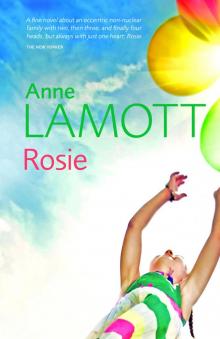 Rosie
Rosie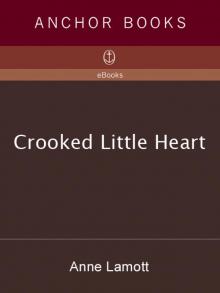 Crooked Little Heart
Crooked Little Heart Bird by Bird: Some Instructions on Writing and Life
Bird by Bird: Some Instructions on Writing and Life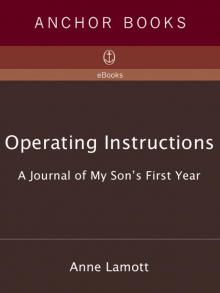 Operating Instructions: A Journal of My Son's First Year
Operating Instructions: A Journal of My Son's First Year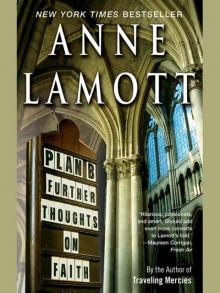 Plan B: Further Thoughts on Faith
Plan B: Further Thoughts on Faith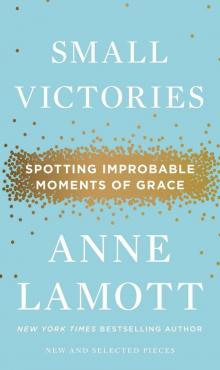 Small Victories: Spotting Improbable Moments of Grace
Small Victories: Spotting Improbable Moments of Grace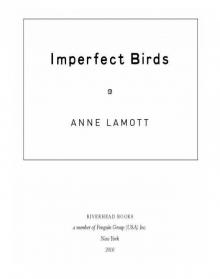 Imperfect Birds
Imperfect Birds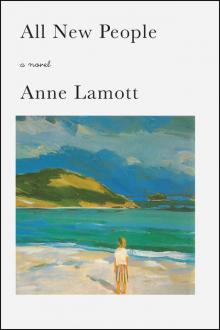 All New People
All New People Grace (Eventually)
Grace (Eventually)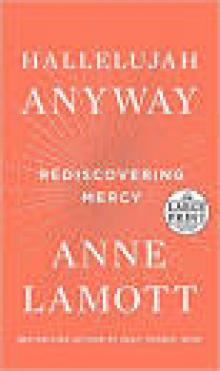 Hallelujah Anyway
Hallelujah Anyway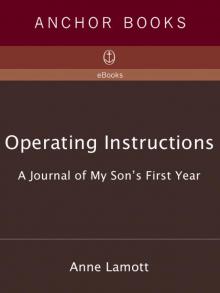 Operating Instructions
Operating Instructions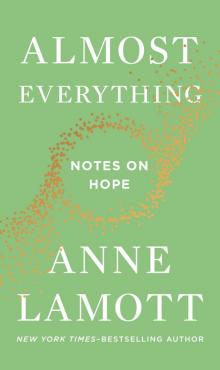 Almost Everything
Almost Everything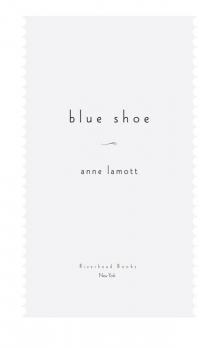 Blue Shoe
Blue Shoe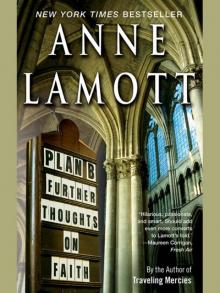 Plan B
Plan B Bird by Bird
Bird by Bird